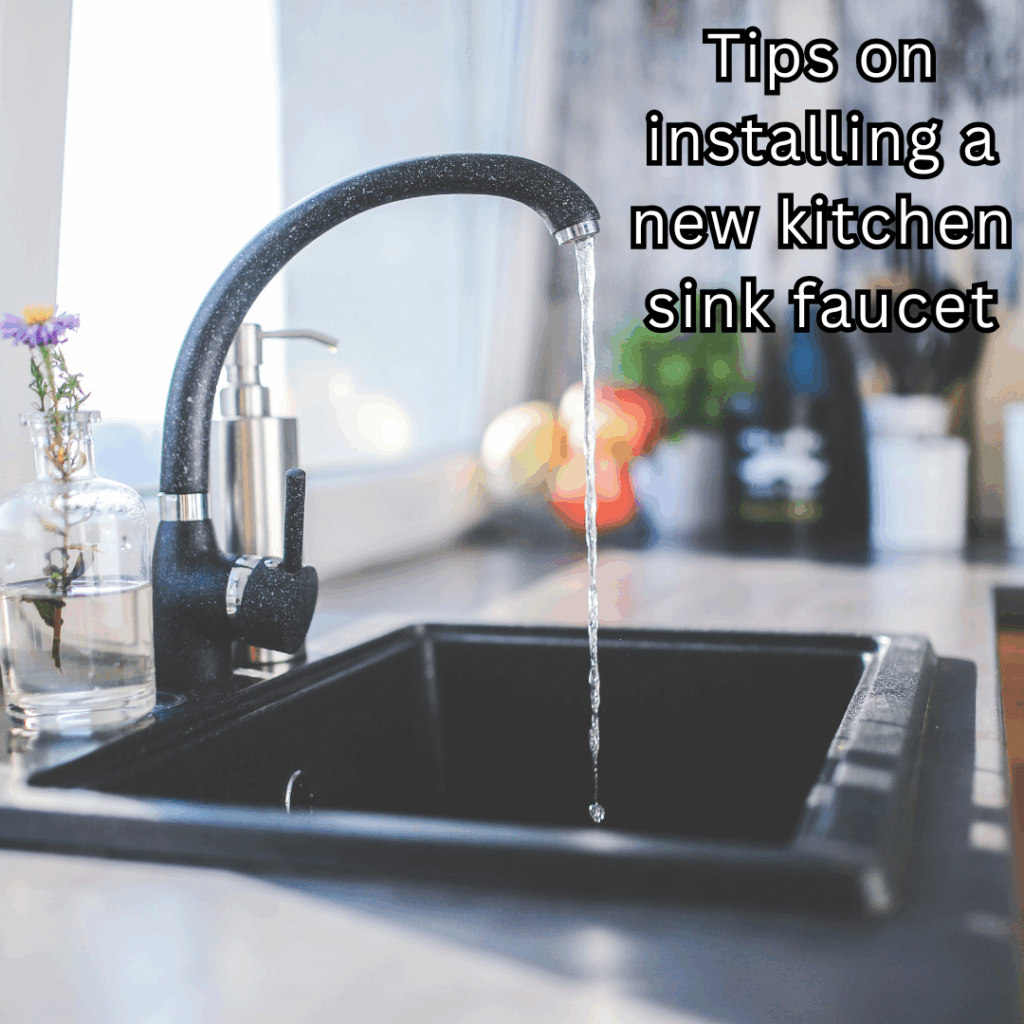MON-FRI / 7:00 AM - 5 PM

Thinking about installing a new kitchen sink faucet? Whether you’re remodeling your kitchen or simply replacing an old fixture, a new faucet can transform the look and feel of your space. The good news is—with a little preparation and patience—you can learn how to install a new kitchen sink faucet yourself or decide when it’s time to call in the pros.
In this guide, we’ll walk you through everything you need to know about installing a new kitchen sink faucet, common challenges, and practical DIY solutions to help you succeed.
Updating your faucet isn’t just cosmetic. Older faucets may leak, lose water pressure, or lack modern features like sprayers or touchless controls. Installing a new kitchen sink faucet boosts water efficiency, improves usability, and enhances your kitchen’s overall style.
Before you start, gather the necessary tools. This makes installing a new kitchen sink faucet quicker and less frustrating.
Adjustable wrench
Basin wrench
Plumber’s tape
Bucket or towel
Silicone sealant or plumber’s putty
Flashlight or headlamp
Now, let’s dive into how to install a new kitchen sink faucet with confidence.
Shut off the hot and cold water valves under the sink. Open the faucet to release any remaining pressure.
Use an adjustable or basin wrench to loosen and remove the nuts holding the old faucet. Carefully disconnect the supply lines.
After removing the old faucet, clean the area around the sink holes to ensure a watertight seal.
Follow the manufacturer’s instructions to insert the new faucet into the sink holes. Use silicone or plumber’s putty to prevent leaks.
From under the sink, tighten the mounting nuts to secure the faucet. Then connect the hot and cold supply lines, using plumber’s tape on the threads for a tight seal.
Turn the water back on and check all connections. If there’s any dripping or moisture, tighten fittings and check seals again.
Even a straightforward job like installing a new kitchen sink faucet can come with surprises:
Corroded fittings: Old hardware may be rusted and difficult to remove.
Tight working space: Limited room under the sink can make installation tricky.
Incorrect faucet size or fit: Double-check compatibility before purchasing a faucet.
If you’re unsure about any step in how to install a new kitchen sink faucet, it’s okay to call a professional.
You may want to reach out to a pro if:
You find damaged or rusted shutoff valves.
You can’t remove old parts or reach tight areas.
The faucet installation leads to persistent leaks.
At Pro Flow Plumbing Solutions, we specialize in installing new kitchen sink faucets safely and efficiently—no stress, no mess.
Double-check faucet compatibility with your sink’s hole spacing.
Label hot and cold lines to avoid mixing them up.
Take your time—rushing increases the risk of leaks or improper fit.
If you’ve been putting off installing a new kitchen sink faucet, there’s no better time to get started. Use this guide to take on the task yourself—or call Pro Flow Plumbing Solutions for fast, friendly, and expert installation.
Here are some trusted sources you can use:
Family Handyman – Great for step-by-step DIY guides
🔗 https://www.familyhandyman.com
This Old House – A credible source for home improvement tutorials
🔗 https://www.thisoldhouse.com
EPA WaterSense – For statistics and tips on water efficiency
🔗 https://www.epa.gov/watersense
Home Depot or Lowe’s – Product installation tips and tool guides
🔗 https://www.homedepot.com
🔗 https://www.lowes.com

Pro Flow Plumbing Solutions offers top-quality residential plumbing and emergency services. Licensed, insured, & experienced in all aspects of residential plumbing.
© Pro Flow Plumbing 2024. All Rights Reserved.
This site uses cookies to enhance your browsing experience. By continuing to use this site, you consent to our use of cookies. For more information on how we use cookies and how you can control them, please read our privacy policy